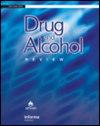Rapid Review of Addiction Practice Supervision
Abstract
Issues
Clinical supervision is important in addiction practice to uphold ethics, maintain best practice and provide support for practitioners facing work-related stress or risk of burnout. However, addiction practice supervision research is limited and the theoretical foundations have not been critically reviewed. The lack of evidence on available models for supervisors and practitioners drove the need for a targeted review.
Approach
This rapid review, informed by Cochrane guidelines, employed a systematic protocol using a broad keyword search on Google Scholar, Scopus, CINAHL and Embase to identify theories and models in supervision for addiction treatment settings. The search returned 274 results, with 11 resources meeting the eligibility criteria following the PRISMA selection process.
Key Findings
Ten models and theories were identified which fell into one of four categories: Integrative (three), Blended (two), Competency-based (two) and Other (three). All three integrative models were developmental clinical supervision models.
Implications
This review shows that developmental supervision models are prominent in the literature, with addiction practice supervision generally favouring clinical supervision. The lack of empirical studies, however, suggests a gap that future research should address.
Conclusion
Despite the limited scope of this rapid review, a strong theoretical foundation for addiction practice supervision was identified. Most models are developmental, with many combining various approaches; some also feature specific adaptations for relevance, while a few are ethical evaluation. This diversity shows promise and the need for further research to assess these models.


 求助内容:
求助内容: 应助结果提醒方式:
应助结果提醒方式:


